FLI Mouse Facility
In contrast to wild mice, laboratory mice live in a standardized and specific pathogen-free environment.
We take numerous measures to ensure optimal conditions for keeping the animals at FLI:
Living together:
- The animals live together in small groups. The young mice are separated from their parents at the age of approx. 3 to 4 weeks and move into their own cage.
Cages:
- All cages have their own air supply. The air is cleaned, filtered and humidified. The temperature is kept constant at 21-22 degrees. The cages are equipped with playing tunnels and nest building material.
Food:
- Our mice have unlimited access to food and water. The food is optimally adapted to the needs of our mice and is autoclaved before use.
- Our mice have unlimited access to food and water. The food is optimally adapted to the needs of our mice and is autoclaved before use.
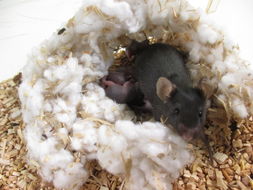
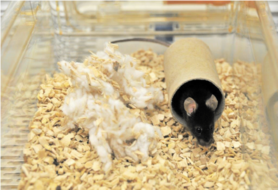
The staff of the mouse facility takes care of the animals every day of the week. Animal caretakers and veterinarians regularly check the animals' state of health and treat any symptoms immediately.
The staff of the cage washing unit is responsible for cleaning and ensures the hygiene standards in the animal facility.
In the following we would like to introduce the individual tasks of the employees of the mouse facility:
Contact
Cathrin Müller
Head Animal Facility Mouse
+49 3641 65-6608
cathrin.mueller@~@leibniz-fli.de
Typical tasks of our animal caretakers are the daily health check of the mice, changing of water bottles and feeding of the animals. During the weekly change of the cages, the mice are placed in so-called autoclaved, i.e. steam-cleaned cages with fresh bedding and nesting material. An external institute monitors the hygienic status of our mouse facility quarterly. In all the work done in the mouse facility, maintenance of the high hygienic standard and a strict documentation of all data are of upmost importance.
Our animal caretakers are also involved in breeding of various genetically modified mouse strains. They register newborn pups in a database and evaluate each litter. Each mouse in our animal facility gets its own number and can be identified by this number and a marker throughout its life. Ultimately, our animal caretakers support the scientists also in carrying out their experiments and make an indispensable contribution with their careful work to the research on aging at the FLI.
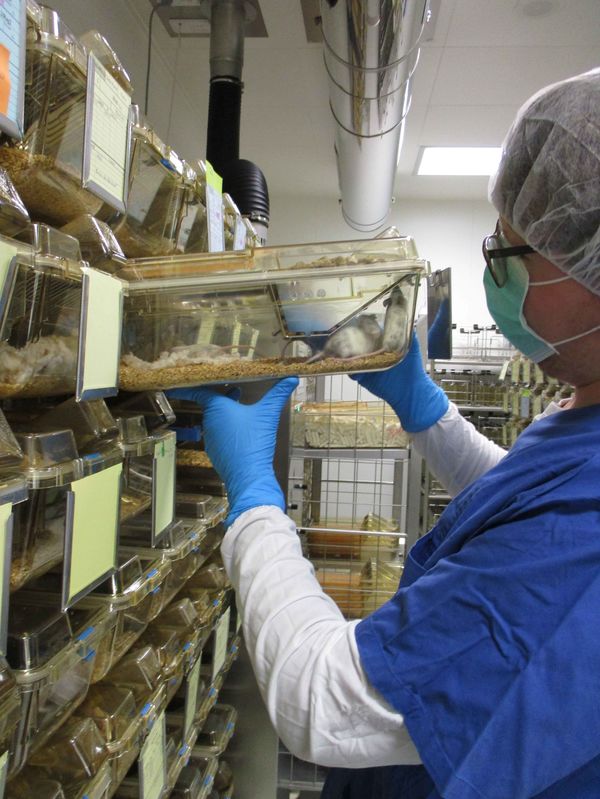
As a service for our scientists, the mouse facility at the FLI offers the sanitation of mouse lines, which means that mouse lines are moved into a facility with a higher hygiene status through the transfer of embryos.
Other services include cryopreservation, i.e. the freezing of mouse lines in the form of sperm or embryo, and the revitalization of mouse lines. Mouse lines can be stored for many years without breeding by cryopreservation and then be reactivated when needed. By sending frozen sperm or embryos to our cooperation partners, live animal transports are avoided.
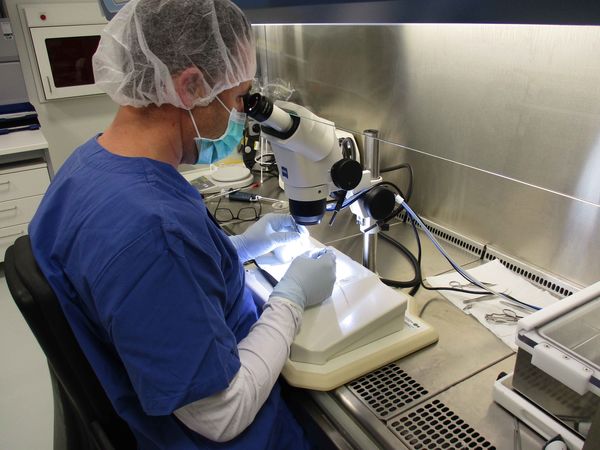
The basic prerequisite for carrying out animal experiments are healthy animals and the absence of specific pathogens. Thus, laboratory mice have to be bred in compliance with the strictest hygiene regulations and under constant health control. Cleanliness standards and sterility are very important not only when working with the animals themselves, but also during the preparatory work. Therefore, the cage wash technicians are a significant part of our mouse facility. Their main task is to prepare the working materials for the animal caretakers, such as cleaning and sterilizing the cages and water bottles. These tasks also include the control and organization of consumables and inventories.
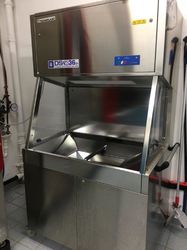
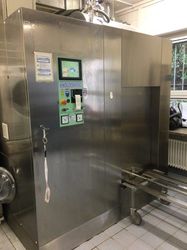
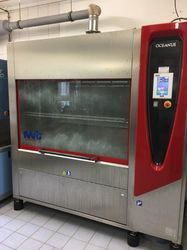
To ensure that our animals are in good hands, we train our animal keepers ourselves in the fields of research and clinic.
The training usually takes 3 years with practical parts at the and theoretical training periods at FLI.
Training includes appropriate care of our laboratory animals, feeding and breeding of experimental animals, assistance in experiments as well as the documentation of the animal data according to legal regulations.
To provide our trainees with a broad overview on their vocational field, they get to know also our animal facility for zebrafish and Nothobranchius furzeri. Furthermore, they perform a laboratory internship and learn about other animals in the Zentrale Experimentelle Tierhaltung of the Friedrich Schiller University Jena, animal clinics Jena-Lobeda and the German Primate Center (DPZ) in Göttingen.
You can find more information about the .









